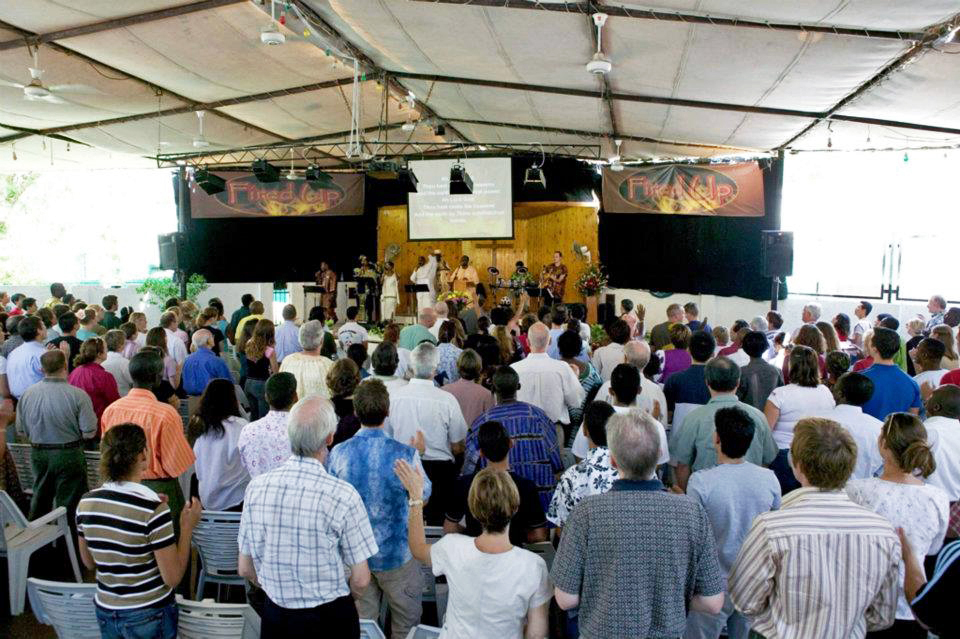This article is by Larry McCrary, Co-Founder and Executive Director of the Upstream Collective and was originally published on their blog.
Although this article specifically references “business people”, we encourage you to read this in context of any professional who obtains a job with an employer overseas.
- Harv Matchullis, Marketplace Facilitator, C&MA Canada
Limitless sending from the global church for the glory of God among the nations? Yes, please! If that’s the goal, myriad pathways will be required and marketplace workers will be absolutely vital. Our churches will have to rethink processes, redesign development and training, and create new sending mechanisms we’ve not employed before. Our field workers will need to consider healthy partnership with these new types of workers. We will have to expand far beyond the one-dimensional pathways to which we’ve been so accustomed.
It won’t be easy, but it will absolutely be worth it.
Christians all around the world—not only Americans—are more mobile than ever. Globalization and urbanization have opened doors for everyone from students to business people to retirees to plant their lives in foreign cultures for a variety of reasons. In this coming season, it’s vital that the church take full advantage of this glaring opportunity to send our best to the nations through these open doors.
Let’s take a moment to consider the incredible asset we have specifically through the marketplace.
MARKETPLACE WORKERS HAVE GLOBAL MOBILITY
We truly live in a global marketplace. Take a walk through your city and pay close attention to the diversity within the businesses and shops. With very few exceptions, you will find people of other cultures working in your city. Some have relocated permanently to foreign cities. Others regularly travel to participate in the marketplace.
Companies are expanding, and the growing ease of international business is fueling marketplace diversity. It is becoming commonplace, the norm. And it is creating an atmosphere that is primed for an influx of Christian business people from around the world.
The book of Acts offers an example of mobile marketplace workers. Priscilla and Aquila were tent makers engaged in business (Acts 18:3). Not only were they tent makers, they were evidently very mobile. In the Scriptures, we read about them working in four different cities: Pontus, Rome, Corinth, and Ephesus. Their apparent skills and business acumen allowed them to move from place to place as the Spirit led their mission strategy.
As they worked and traveled, they were intentional in regards to the gospel. No matter where they lived, they were engaged in its work:
- Co-working with Paul in Christ Jesus (Romans 16:3)
- Risking their lives for Paul (Romans 16:4)
- Assisting Paul in Ephesus (Acts 18:18–28)
- Hosting a church in their own home (1 Corinthians 16:19, Romans 16:3–5)
- Instructing Apollos privately to help him to learn more about Jesus (Acts 18:26)
John B. Pohill writes of the duo’s impact, “Here is a perfect example before us . . . Christians like Aquila and Priscilla traveling the routes of trade and commerce and carrying their faith wherever they went” (283).
MARKETPLACE WORKERS HAVE A FINANCIALLY SUSTAINABLE MODEL
Privately funding cross-cultural missionaries is becoming increasingly difficult. That’s not to say that this traditional pathway should be eliminated. It should simply drive us to creatively think about other viable pathways to missions. Marketplace workers don’t require private funding since their financial stability comes through commerce.
Luke also described Paul as a tent maker in the book of Acts. He had a marketable trade and could create enough income to sustain his work in mission. At times Paul mentioned that he worked so as not to create a burden for the church (1 Corinthians 4:12, 2 Thessalonians 3:8). Again, there is an obvious basis for workers to be funded by churches, but there’s also biblical support for funding missions in this way.
MARKETPLACE WORKERS HAVE CREDIBILITY
One of my favorite stories in the book of Acts is when Paul was waiting in Athens for his coworkers (Acts 17:16–21). He mingled among the vendors in the marketplace, reasoning with them about the gospel, a practice he probably perfected because he was a tent maker. He could speak to the merchants as an insider—as one of them—because he too was part of the business community.
I have seen examples the world over in which marketplace workers gained instant credibility and receptivity in a new country simply because they were there with a purpose: to do business. Conversely, as a vocational missionary, I have experienced just the opposite in places I have served. I have categorically been an outsider, lacking credibility, especially with professionals. Employing marketplace skills and presence would have immediately opened doors to quicker and deeper conversations about the gospel.
MARKETPLACE WORKERS HAVE ACCESS
Marketplace workers have one very clear-cut advantage over full-time workers in many places. They have access to the people because they work with them every day. In societies that place a high value on work, long hours in the workplace are the norm. Therefore, a connection within the marketplace is critically valuable.
Luke 5 records the story of Jesus calling his first disciples. Among the early disciples was Levi the tax collector whose conversion offers a glimpse into a marketplace gospel encounter. As a tax collector, Levi was labeled an outsider and a sinner and rejected by Jewish leaders. His friends, then, were others like himself. Levi left his profession to follow Jesus, but he threw a large banquet with those tax collector friends and introduced them to Jesus on his way out. He wanted them to meet the one who had changed him. He was able to make the introduction because of his unique access to them through their shared profession.
We would be remiss to ignore this particular pathway to mission. We need to explore and emphasize it and think deeply about how God might use business people for his glory among the nations. I believe we should begin to consider it critical to our sending strategies and prepare business people to join in the work going on already through our vocational missionaries. Let’s begin training and preparing business people to go and release a missionary force far greater than we could ever dream of through more traditional means.








